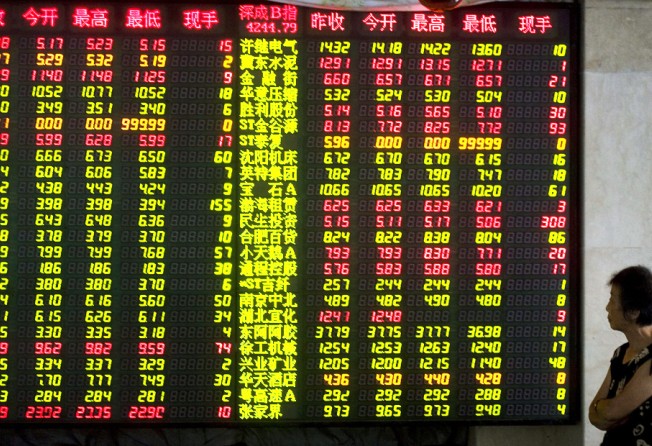China stocks fall after party issues vague communiqué following plenum

Chinese stocks yesterday saw their steepest decline in nearly two months after a key Communist Party meeting failed to deliver bold and detailed reform plans to sustain the growth of the world's second-largest economy.
The Shanghai Composite Index slumped 1.8 per cent to 2,087.94 at the close, its biggest decline since September 26. The Hang Seng Index finished fell 1.9 per cent to 22,463.8 points, while the China Enterprises Index of Hong Kong-traded Chinese shares slid 2.7 per cent - their largest daily loss since August 20. The vaguely worded communiqué released on Tuesday after a four-day plenum of party leaders apparently failed to impress investors, businessmen or observers, even though it mandated a "decisive role" for the market.
While few expected many details from the plenum's closing message, observers said they had expected the leadership to have the resolve to announce major policy moves that would put the Chinese economy on a healthier track.
Hopes were running high in the lead-up to the plenum, with Politburo Standing Committee member Yu Zhensheng having pledged "unprecedented" reform policies, in terms of both scale and scope.
"Public expectation for the third plenum had been extraordinarily high," said Tao Jingzhou, managing partner at law firm Dechert China.
Tao welcomed some plans in the communiqué, such as expanding the development of free- trade zones, but said they did not go far enough. "It wouldn't make much sense simply to build more free trade zones," he said. "The key is to reduce barriers for investors to enter the market."
While the communiqué contained broad-brush ideas, it was seen as lacking specifics.
Bocom International chief China strategist Hong Hao said: "We could almost hear the sound of discontent when the curtain of the plenum was finally drawn. The communiqué from the plenum contains little details for reform, but compensates with its lofty ideals."
Despite the party's promise to give greater room to the private sector, Guo Yang, the president's secretary at Baotao Petrochemical, said he did not expect the government to open up the energy sector thoroughly to private investors like his company due to national security concerns. "We need to see more details as to what extent the government will relax controls."
By emphasising the need to let the market decide prices, the document indicated that controls on the financial sector would be eased.
The establishment of a top-level team on "comprehensively deepening reform" was a strong indication of the leadership's determination to press ahead with economic restructuring, said Li Zuojun, a senior researcher at the State Council's Development Research Centre. Li said the reforms would come gradually.
The platitudes the communiqué offered on political reform received a tepid response from liberals and conservatives.
Sima Nan , a prominent leftist scholar, wrote on his blog that he was "relieved" when "Mao Zedong thought" was listed as one of the ideological guides to reform. But he expressed dissatisfaction that a reference to "common prosperity" was "hidden in a bunch of words".
Chen Ziming , a political commentator, said the communique reflected Xi's fundamental attitude towards political ideology.
"It might not be tightening further, but it will never be loosened up," Chen said.
Additional reporting by Laura Zhou and Jane Cai